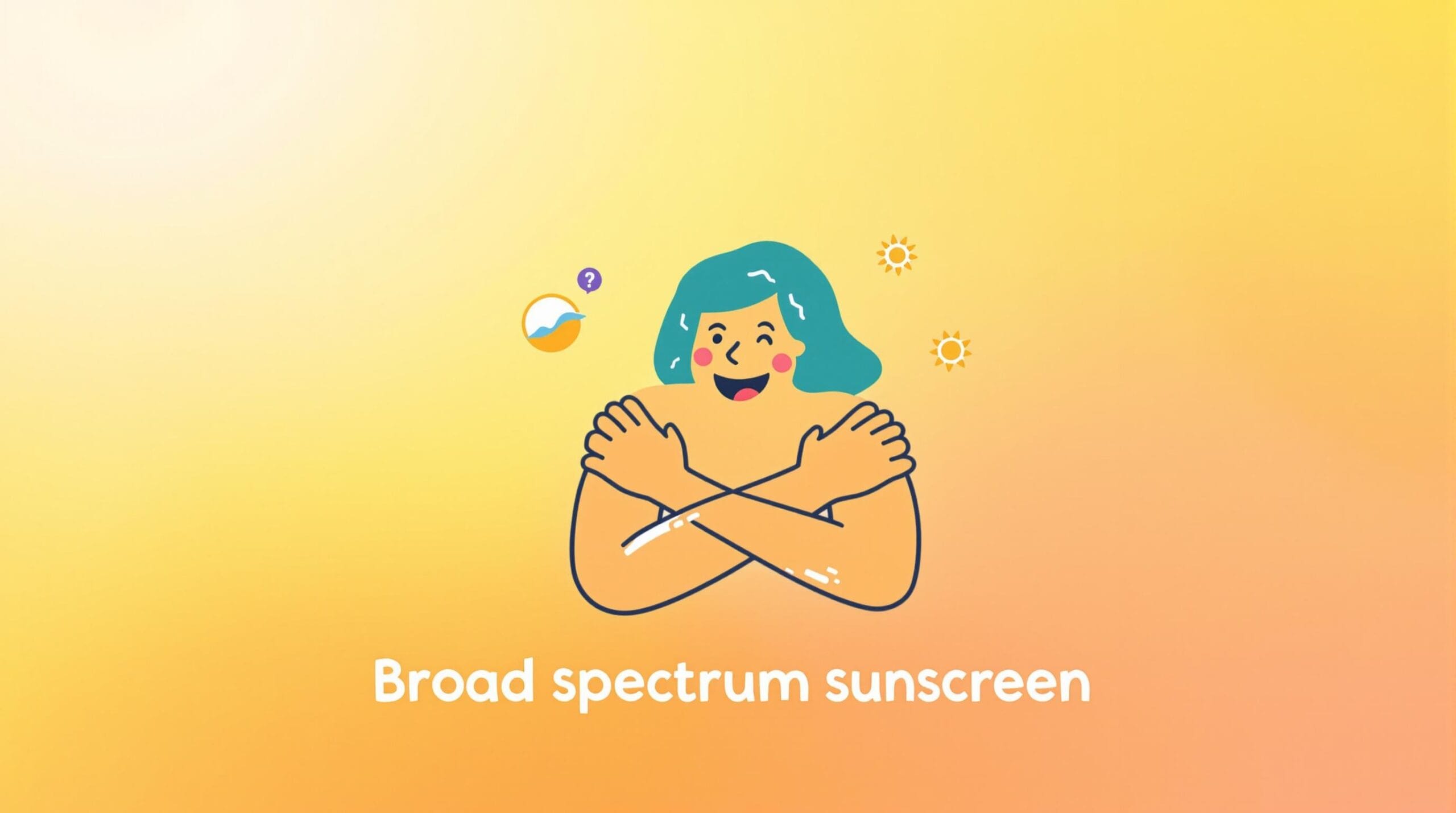
The sun gives us light and warmth, but it also hides dangers that can harm our skin. Harmful UV rays can cause sunburn and long-term damage, making broad spectrum sunscreens essential. Choosing the right sunscreen matters significantly. “Broad spectrum sunscreen” is a term you often see, but what does it mean? This article will explain its importance in sun protection.
Broad Spectrum vs. Regular Sunscreen: What’s the Difference?
Broad spectrum sunscreen protects against both UVA and UVB rays. In contrast, regular sunscreens often only guard against UVB rays, offering limited defense. UVB rays can cause sunburn, whereas UVA rays are linked to early skin aging and increased skin cancer risk. Choosing broad spectrum sunscreen ensures comprehensive protection from skin damage.
Understanding UV Rays: The Good, the Bad, and the Ugly!
UVA rays can deeply penetrate the skin, causing aging and wrinkles. UVB rays primarily result in skin burns and immediate damage. Both types pose risks for skin cancer, making it essential to use a sunscreen that blocks both for effective sun protection.
Understanding the Sun Protection Factor (SPF)
SPF indicates how effectively a sunscreen protects your skin from UVB rays. The SPF number shows how much longer you can stay in the sun without burning compared to having no sunscreen. It’s a common myth that SPF indicates UVA protection; however, that is not accurate.
Why You Need Broad Spectrum Sunscreen: The Real Deal!
Using broad spectrum sunscreen daily protects against skin cancer, prevents premature aging, and maintains even skin tone. These benefits are essential in maintaining skin health. Consistent application can slow down the aging process and prevent sun spots.
The Risks of Skipping Broad Spectrum Sunscreen
Without proper sun protection, you’re at an increased risk of skin cancer, premature skin aging, sunburns, and uneven skin tone. According to dermatologists, skipping sunscreen can lead to irreversible damage.
Key Ingredients to Look For in Your Sunscreen
Ingredients like zinc oxide and titanium dioxide are effective for broad spectrum coverage. These minerals offer a physical barrier against UV light, while chemical sunscreens absorb UV radiation.
How to Choose the Right Broad Spectrum Sunscreen
Your ideal broad spectrum sunscreen should suit your skin type and lifestyle. Consider water resistance if you’re swimming or sweating. For sensitive skin, opt for formulations without fragrances or parabens.
Should You Go Chemical or Mineral?
Chemical sunscreens absorb into the skin and convert UV rays into heat. Mineral sunscreens block and reflect UV rays. Both have their pros and cons; for sensitive skin, mineral is a gentler choice.
Application Tips: Mastering Your Sunscreen Routine!
Apply sunscreen generously on all exposed skin 15 minutes before going outdoors. Reapply every two hours or after swimming or sweating. Consider a broad spectrum sunscreen for all-day protection.
Common Sunscreen Mistakes to Avoid
Avoid applying too little or skipping areas like ears and neck. Also, use sunscreen daily, not just on sunny days. Avoid expired products as they lose effectiveness.
Debunking Myths: Let’s Set the Record Straight!
One common myth is that people with darker skin do not need sunscreen. All skin types need protection from UV rays. Another myth is that you only need sunscreen on sunny days; UV rays penetrate clouds and windows.
Broad Spectrum & Makeup: Can They Coexist?
Yes, they can. Apply sunscreen before your foundation. Many products offer SPF ratings, integrating easily into your daily makeup routine. Look for cosmetics with added sunscreen protection.
Conclusion: Your Skin Deserves the Best!
We’ve discussed what broad spectrum sunscreen is and why it matters. Protecting your skin from UV rays can prevent aging and skin cancer. Stay informed and make thoughtful sunscreen choices.







